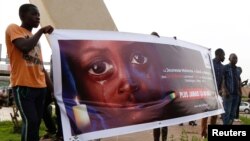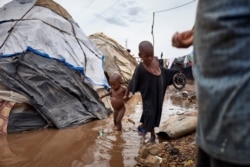The number of children forced to join armed groups in Mali has doubled since last year amid worsening jihadist and ethnic violence, the United Nations said Tuesday.
In the first six months of 2019, the U.N. children's agency, UNICEF, recorded 99 cases of children in Mali being recruited or used by armed groups, often as soldiers, spies, cooks or cleaners, compared to 47 in the same period last year.
"This is very much a reflection of the deteriorating security situation, in particular in the center of Mali," UNICEF spokeswoman Eliane Luthi told the Thomson Reuters Foundation.
The West African country has been in conflict since 2012 when Islamists hijacked an ethnic uprising by Tuaregs in the north. More recently the violence has moved to central Mali, where fighting between farmers and herders has surged this year.
The number of children in Mali who were killed or maimed in conflict almost quadrupled to 229 in the first half of 2019, up from 59 in the same period last year, UNICEF said.
Fulani herders and Dogon farmers have long competed for land and resources in Mali, but jihadist groups have exploited their ethnic rivalry to boost recruitment and expand their reach.
In March, suspected Dogon militiamen killed more than 150 Fulani in central Mali, one of the worst acts of bloodshed in the country's recent history.
The insecurity has forced over 900 schools to close, which is another factor driving recruitment of children, said Luthi.
"We know very well that when children are out of school they are exposed to all sorts of other violations," she said.
The figures reflect a wider trend of children being more caught up in conflicts globally, said Keyan Salarkia, an expert on conflict with British charity Save the Children.
"The rules and the laws of conflict aren't being upheld," he said.
The number of violations against children in war have tripled globally since 2010, according to Save the Children.






